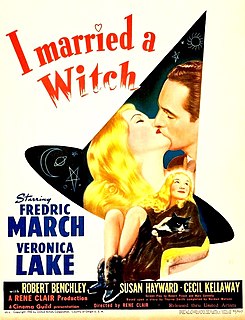
Stephen Edwin King is an American author of horror, supernatural fiction, suspense, crime, science-fiction, and fantasy novels. Described as the "King of Horror", a play on his surname and a reference to his high standing in pop culture, his books have sold more than 350 million copies, and many have been adapted into films, television series, miniseries, and comic books. King has published 64 novels, including seven under the pen name Richard Bachman, and five non-fiction books. He has also written approximately 200 short stories, most of which have been published in book collections.

The English Patient is a 1992 novel by Michael Ondaatje. The book follows four dissimilar people brought together at an Italian villa during the Italian Campaign of the Second World War. The four main characters are: an unrecognisably burned man — the eponymous patient, presumed to be English; his Canadian Army nurse; a Sikh British Army sapper; and a Canadian thief. The story occurs during the North African Campaign and centres on the incremental revelations of the patient's actions prior to his injuries, and the emotional effects of these revelations on the other characters. The story is told by multiple characters and "authors" of books the characters are reading.

Philip Michael Ondaatje is a Sri Lankan-born Canadian poet, fiction writer, essayist, novelist, editor, and filmmaker. He is the recipient of multiple literary awards such as the Governor General's Award, the Giller Prize, the Booker Prize, and the Prix Médicis étranger. Ondaatje is also an Officer of the Order of Canada, recognizing him as one of Canada's most renowned living authors.

The English Patient is a 1996 epic romantic war drama film directed by Anthony Minghella from his own script based on the 1992 novel of the same name by Michael Ondaatje and produced by Saul Zaentz.

Barchester Towers is a novel by English author Anthony Trollope published by Longmans in 1857. It is the second book in the Chronicles of Barsetshire series, preceded by The Warden and followed by Doctor Thorne. Among other things it satirises the antipathy in the Church of England between High Church and Evangelical adherents. Trollope began writing this book in 1855. He wrote constantly and made himself a writing-desk so he could continue writing while travelling by train. "Pray know that when a man begins writing a book he never gives over", he wrote in a letter during this period. "The evil with which he is beset is as inveterate as drinking – as exciting as gambling".

Mrs Dalloway is a novel by Virginia Woolf, published on 14 May 1925, that details a day in the life of Clarissa Dalloway, a fictional upper-class woman in post-First World War England. It is one of Woolf's best-known novels.

Zadie Smith FRSL is an English novelist, essayist, and short-story writer. Her debut novel, White Teeth (2000), immediately became a best-seller and won a number of awards. She has been a tenured professor in the Creative Writing faculty of New York University since September 2010.

Tabitha Smith is a fictional character, a mutant superhero appearing in American comic books published by Marvel Comics, commonly in association with The X-Men and related titles. Created by Jim Shooter and Al Milgrom, the character first appeared in Secret Wars II #5. She then appeared as a member of X-Force and later as a member of Nextwave. She is mentally able to create variably-sized yellow orbs of pure energy that explode with concussive and destructive force. Since her first appearance, Tabitha has used a number of different codenames, including Time Bomb, Boom-Boom, Boomer, and Meltdown. Tabitha is one of the mutants to have kept their powers after the 2005 "House of M" storyline.

In the Skin of a Lion is a novel by Canadian–Sri Lankan writer Michael Ondaatje. It was first published in 1987 by McClelland and Stewart. The novel fictionalizes the lives of the immigrants who played a large role in the building of the city of Toronto in the early 1900s, but whose contributions never became part of the city's official history. Ondaatje illuminates the investment of these settlers in Canada, through their labour, while they remain outsiders to mainstream society. In the Skin of a Lion is thus an exposé of the migrant condition: "It is a novel about the wearing and the removal of masks; the shedding of skin, the transformations and translations of identity."
Constantia is a South African dessert wine. It is made from Muscat Blanc à Petits Grains grapes grown in the district of Constantia, City of Cape Town. In the eighteenth and nineteenth centuries it was widely exported to Europe. However, production of Constantia ceased in the late nineteenth century following the devastation of South African vineyards by the phylloxera epidemic. Production resumed at Klein Constantia in 1986, at Groot Constantia in 2003 and at Buitenverwachting in 2007.

Anil's Ghost is the critically acclaimed fourth novel by Michael Ondaatje. It was first published in 2000 by McClelland and Stewart.

I Married a Witch is a 1942 American fantasy romantic comedy film, directed by René Clair, and starring Veronica Lake as a witch whose plan for revenge goes comically awry, with Fredric March as her foil. The film also features Robert Benchley, Susan Hayward and Cecil Kellaway. The screenplay by Robert Pirosh and Marc Connelly and uncredited other writers, including Dalton Trumbo, is based on the 1941 novel The Passionate Witch by Thorne Smith, who died before he could finish it; it was completed by Norman H. Matson.

Linda Spalding is a Canadian writer and editor. Born in Topeka, Kansas, the daughter of Jacob Alan Dickinson and Edith Senner, she lived in Mexico and Hawaii before moving to Toronto, Ontario in 1982.
The Royal Society of Literature Ondaatje Prize is an annual literary award given by the Royal Society of Literature. The £10,000 award is for a work of fiction, non-fiction or poetry that evokes the "spirit of a place", and is written by someone who is a citizen of or who has been resident in the Commonwealth or the Republic of Ireland.

Divisadero is a novel by Michael Ondaatje, first published on April 17, 2007 by McClelland and Stewart.
Francis Spufford FRSL is an English author and teacher of writing whose career has seen him shift gradually from non-fiction to fiction. His first novel Golden Hill received critical acclaim and numerous prizes including the Costa Book Award for a first novel, the Desmond Elliott Prize and the Ondaatje Prize. In 2007 he was elected a Fellow of the Royal Society of Literature.
Julia Lovell is a British scholar and prize-winning author and translator focusing on China.

Warlight is a 2018 novel by Canadian author Michael Ondaatje.
Trinkets is an American teen drama streaming television series, based on the 2013 novel of the same name by Kirsten Smith. The series was created by Smith, Amy Andelson, and Emily Meyer. It was released on Netflix on June 14, 2019. In July 2019, the series was renewed for a second and final season which was released on August 25, 2020.













